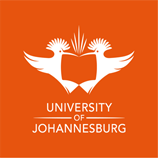The purpose of the Advanced Diploma (AdvDip) in Transportation Management is to provide both theoretical knowledge and practical skills in the field of Transportation Management for prospective students who are currently middle managers, or aspire towards middle management, so that you can apply the

The purpose of the Advanced Diploma (AdvDip) in Transportation Management is to provide both theoretical knowledge and practical skills in the field of Transportation Management for prospective students who are currently middle managers, or aspire towards middle management, so that you can apply the principles of transport management in your working environment.
The programme will develop your knowledge and applied competence relating to transport policy and legislation, transport planning and management, logistics processes and practices, project management and transport operations and costing.
The inclusion of research methodology and a research project, as well as a practical simulation module in which you will be required to apply your acquired theoretical knowledge to current industry-related challenges, offers you the opportunity to balance theory and practice.
The exit-level outcomes of the AdvDip (Transportation Management) programme are aligned with the level descriptors stipulated on Level 7 of the NQF, since you are required to apply theoretical knowledge to complex problems and to present such application as a well-structured argument using academic discourse. Each module in the AdvDip (Transportation Management) programme contributes to achieving Level 7 level descriptors, because you are expected to demonstrate integrated knowledge of the central areas of one or more fields:
Vibrant, multicultural and dynamic, the University of Johannesburg (UJ) shares the pace and energy of cosmopolitan Johannesburg, the city whose name it carries. Proudly South African, the university is alive down to its African roots, and well-prepared for its role in actualizing the potential that higher education holds for the continent's development.
UJ has transformed into a diverse, inclusive, transformational, and collegial institution, with a student population of over 50 000, of which more than 3000 are international students from 80 countries. This makes UJ one of the largest contact universities in South Africa (SA) from the 26 public universities that make up the higher education system.
The vision of the UJ is to be "an international University of choice, anchored in Africa, dynamically shaping the future". The mission can be described as follows: "inspiring its community to transform and serve humanity through innovation and the collaborative pursuit of knowledge".
These are underpinned by four values, namely: imagination, conversation, regeneration and ethical foundation.
The six strategic objectives provide a focused means for realising the Vision, Mission and Values of the University as set out above. They further represent a re-working of the original UJ Strategic Thrusts 2020 in the context of a wider positioning of the University as "The Pan-African" Centre for Critical Intellectual Inquiry, with the primary goal of achieving global excellence and stature.
The six strategic objectives are:
Recognized as the country's second strongest brand, UJ offers world-class, internationally recognized academic programmes based on curricula informed by cutting-edge developments in both undergraduate and postgraduate education, and that are designed to prepare students for the world of work and for global citizenship.
Our curriculum is increasingly reflective of previously marginalized scholarship that talks to a transformation and decolonisation agenda, with Africa at its core.
© 2025 coursetakers.com All Rights Reserved. Terms and Conditions of use | Privacy Policy